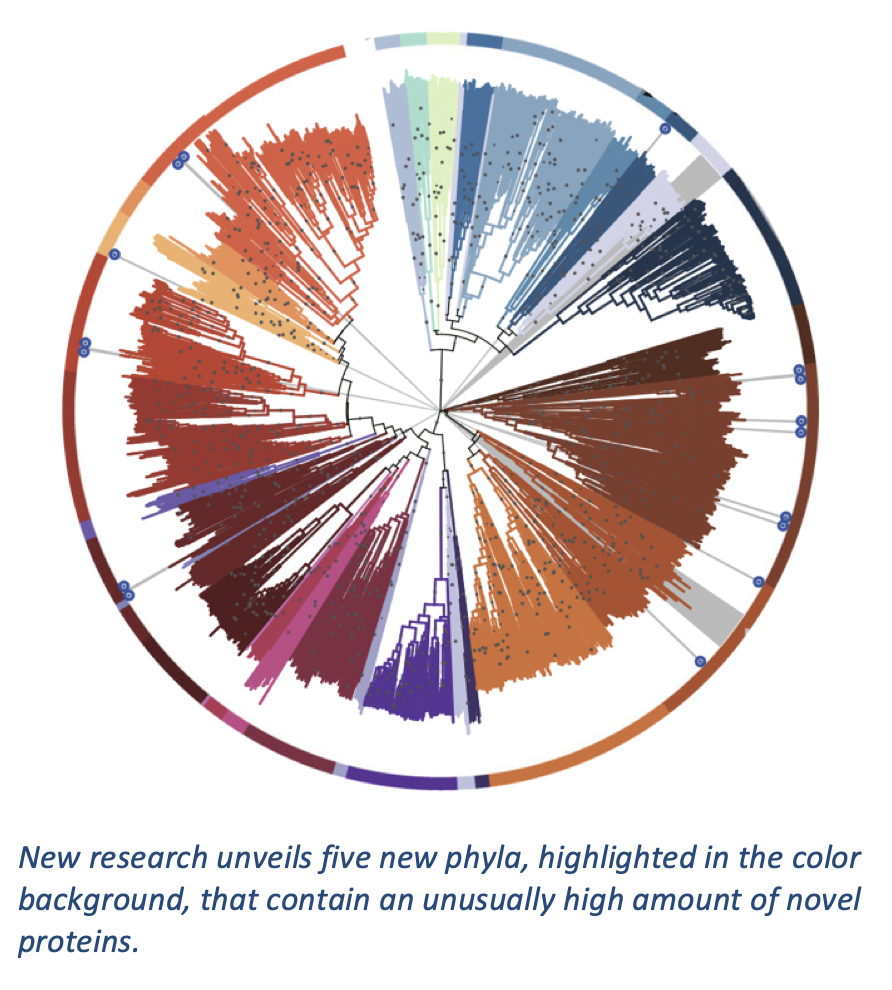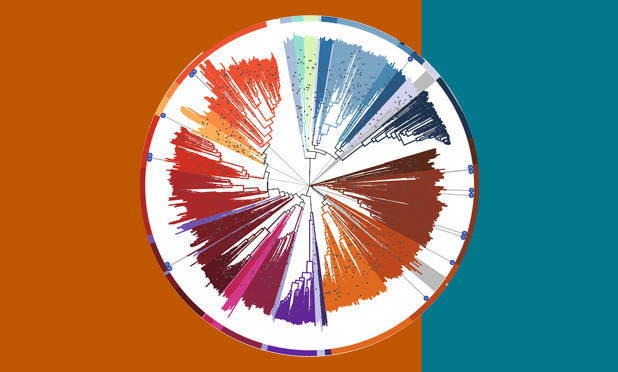 The power of metagenomics strikes again. Marine microbiologists discovered five new bacteria phyla (four never described and one poorly described) from the ocean floor that contain an unusually large number of novel protein families. An international group of researchers led by the University of Texas at Austin described their findings in an article released today in Nature Communications. “What makes this discovery so unique is that we typically find novel proteins when identifying new microbes, but the volume of proteins found in these phyla that have no similarity to any known sequence is exciting,” says Dr. Brett Baker. “It is fascinating that these previously overlooked microbes have different metabolic pathways which could support their worldwide distribution in different habitats," says Dr. Xianzhe Gong.
The power of metagenomics strikes again. Marine microbiologists discovered five new bacteria phyla (four never described and one poorly described) from the ocean floor that contain an unusually large number of novel protein families. An international group of researchers led by the University of Texas at Austin described their findings in an article released today in Nature Communications. “What makes this discovery so unique is that we typically find novel proteins when identifying new microbes, but the volume of proteins found in these phyla that have no similarity to any known sequence is exciting,” says Dr. Brett Baker. “It is fascinating that these previously overlooked microbes have different metabolic pathways which could support their worldwide distribution in different habitats," says Dr. Xianzhe Gong.
Genomes of these new bacteria were initially recovered from sediments 2,000m below the surface ocean, near underwater volcanoes in the Gulf of California. The researchers found that these new microbes are found in many different habitats around the world and appear to be cosmopolitan across the ocean floor. The floor of the ocean is the final resting place for detritus and most of the remineralization of nutrients happens there. “These bacteria appear to be playing important steps in sulfur, carbon and nitrogen cycling and this information could help redefine global models” says Dr. Valerie De Anda
The researchers not only identified key genomic and metabolic features of these widespread and overlooked bacteria, but we took a more in-depth approach to find novelty at a metabolic level. Locating novel sequences within these genomes was no small feat Dr. Baker states “It was a monumental effort to compare these genomes and their proteins with those from almost 200,000 publicly available genomes with very strict criteria.” “Our supercomputers searched and compared what we found in these novel bacteria with what is known.” This made them realize that many of the sequences have never been described before. "This is really important since much of the information that we used to infer microbial physiology and ecological roles from genomic data relies on what has been previously described". "We also realized that many of these novel proteins are very specific to these novel bacterial groups, therefore they could be used as a fingerprint to understand the diversification and evolution of these novel lineages" says Dr. Valerie De Anda. To discern the possible function of these novel proteins the researchers compared the genomic information, looking for clues in the genes next to the unknown sequences and found that hundreds co-localized with sequences involved in sulfur and nitrogen cycling, energy, and potential organic degradations, all of which are crucial components of ocean’s chemistry.
Since these novel bacteria were first found in deep sea sediments, researchers commemorate their discoveries by naming the four new phyla after deep-sea female scientists that have made significant contributions in the deep sea: Dr. Raquel Negrete Aranda (Schmidt Ocean Institute), Dr. Ruth Blake (Yale University), Dr. Victoria Orphan (Caltech) and Dr. Samantha Joye (University of Georgia)
Dr. Xianzhe Gong, Dr. Valerie De Anda and Dr. Brett Baker are joined this study by co-authors Álvaro Rodríguez del Río and Jaime Huerta-Cepas from the Centro de Biotecnología y Genómica de Plantas (UPM-INIA/CSIC), Madrid, Spain; Le Xu and Zhiyi Chen from Shandong University, China; Marguerite Langwig from the University of Texas Marine Science Institute; and Lei Su and Mingxue Sun from Tongji University, China.
This work was supported by the Simons Foundation, National Natural Science Foundation of China, Shandong University Foundation for Future Scholar Plan, China Scholarship Council, “la Caixa" Foundation, and the Marie Skłodowska-Curie grant.









